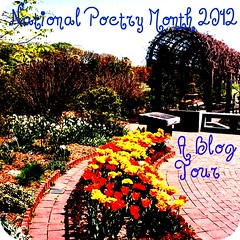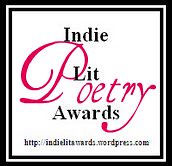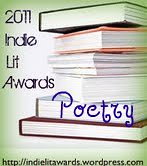
Please give Edward Nudelman a warm welcome.
1. Could you explain the process of selecting the poems for your collection and how it felt to be nominated and then to be the runner-up for the 2011 Indie Lit Award?
Selecting poems for a collection is an important process, dictated not only by the quality of the poem, but also its cohesiveness with respect to the book’s theme and tone. I started with about 100 poems and then tried to select those that fell into one of several criteria I had predetermined to be important. In What Looks Like an Elephant, I was interested in comparing elements of experience dealing with certainty and doubt, the often contradictory and counterintuitive process of both finding comfort in what we know (or feel) to be true versus the angst of coping with the fear (or dread) of what we don’t know. Also, for me, not only is the selection process important, but also the ordering and presentation of the poems so that a story is told with the unfolding of the poems.
It feels great to be nominated and then be runner-up for The Indie Lit Award. To be more specific, the feeling falls somewhere between having a root canal without Novocain and winning the Lotto for 250 million dollars.
2. What events, books, or teachers turned you on to writing and/or inspired your writing? Would you count Robert Frost as an influence (particularly given your poem “Something There Is That Doesn’t Love a Garage”)?
Although I read a good deal of Frost in my younger years, and one teacher said I was a “Frost-incarnate,” I can’t say that he has been a major influence on my development, though probably to some degree. The poem you cite does riff off of one of Frost’s great poems, but that’s about all it does in association with Frost. Of course, like everyone else, I love Frost’s storytelling and his deeply committed allegiance to locality; I suppose I draw on that by default.
3. Tell us a little about your career as a scientist and how it finds your way into your poetry?
I have been a scientist in the field of cancer biology for over 30 years. It’s been a wild and fun ride, both immensely rewarding as well as frustrating and often demoralizing. I have had the fortune of being mentored by a twice Nobel nominee and have been able to publish over 60 papers in top-tier cancer journals. I only mention this because it’s important for those reading my work to know that I’ve been immersed in the field, and, as a poet, I’m often trying to bring to the reader certain elements of this world (i.e. the scientific community, scientific method, etc.) in an accessible and hopefully alluring fashion. I’m interested in exploring topics of fear, separation, temporality, loneliness as well as triumph and exhilaration. I find fascinating parallels in what I do as a scientist, and what I struggle with experientially.
4. Poetry is often considered elitist or inaccessible by mainstream readers. Do poets have an obligation to dispel that myth and how do you think it could be accomplished?
Well, I come from the land of elitism (the science world), so I’m well versed in its rules and regulations. However, I think if you look for it, you can find examples of elitism in practically every vocation. In poetry, you can find enclaves of elitism, but I don’t think it’s as big problem as sometimes reported. How does one define elitism? Making oneself inaccessible? Do poets really do that intentionally? I doubt it, and if they did, they wouldn’t write very good poetry.
Interpreting or even enjoying poetry often takes considerable effort, and perhaps this is interpreted by some as being elitist (why don’t they just come out and say it!). But, I think the issue and the resolution more relates to education. And we’re getting better at explaining what poetry is, what it aims to do, and what it never purports to do (i.e. be self-defining). So, in short, I’m not too worried about whether a particular poem or poet is considered elitist. Actually, I’m more worried about the opposite: the dumbing-down of poetry and the resultant acceptance of mediocrity.
5. Poetry is often solitary, more so than other art forms on occasion, because it is deeply personal, but there are efforts like the Split This Rock Poetry Festival and others that attempt to bring poetry to the masses and to bring about a social connection and call attention to a particular cause. Do you feel the need to do the same in your work? If so, why or why not? What do you think of these poetic movements?
Poetry movements are fine and serve a purpose I suppose, to punctuate any particular time or place something that needs to be brought into focus, into awareness. Poetry can do this, I think, in a way in which no other written medium can accomplish. Poetry has had a long rich history in the halls of social referendum and the people’s cry for change either from the street, the pulpit or in the workplace.
However, poetry should never be railroaded into a certain raison d’etre. If you do that, you begin to etch away at its power, which is the explosiveness of a single voice. [see the latest uproar over Gunter Grass’ critique of Israel in poetic form]
For me, it is that personal expression that pleases, that keeps me going back through my mind and emotion to form words in a language I’m just beginning to understand.
6. What are you reading now in poetry and what poetry would you recommend others read and why?
Lately, I’ve been reading a good deal of Denise Levertov, a poet who interestingly (as per above), wrote poems early on in her career addressing political problems (Vietnam, women’s rights, etc.), calling forth public action over individual apathy. In her later years, however, her poetry evolved into a much calmer voice that I really love, dealing with more fundamental and universal issues in a refreshing way. I’m also reading Simic, Bishop, W.C. Williams, Wallace Stevens. These are contemporary poets I read and like on a day to day basis and most are fairly well known: David Yezzi, A.E. Stllings, Stephen Edgar, Jane Hirshfield, W.S. Di Piero, Daisy Fried, Ange Mlinko, D.A. Powell and Sasha Dugdale as well as a host of modern poets whose names you might not readily recognize.
Thanks, Edward, for answering these “probing” questions.
Edward Nudelman is a poet, scientist and literary critic from Seattle. He has two poetry books and his latest collection was runner-up for book of the year. Check out his Website.
***Today’s NPM blog tour stop is at Bookalicious.***










